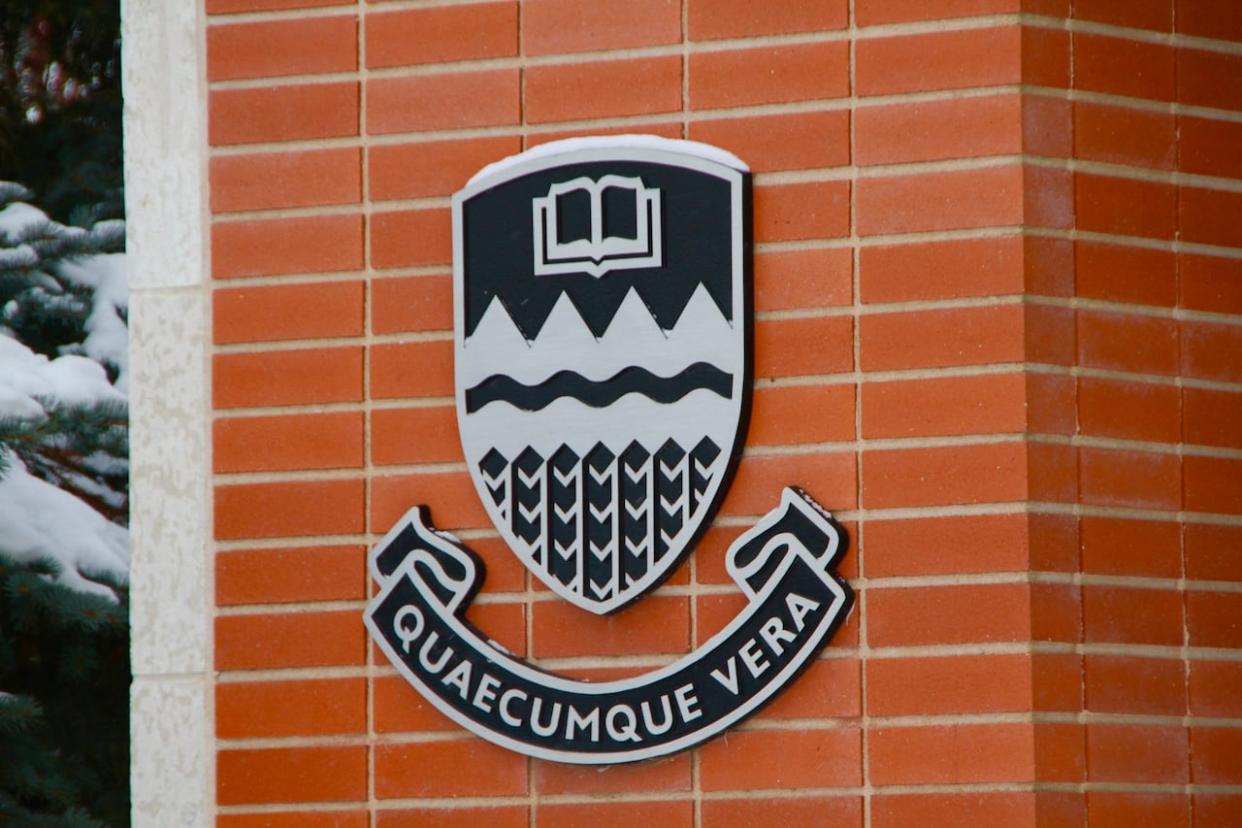Alberta bill requiring provincial approval of federal funding risks political meddling, academics say

Some Alberta academic leaders say a provincial government bill that proposes to vet all federal funding to post-secondary institutions poses a risk to academic freedom.
Critics of the government's Bill 18, The Provincial Priorities Act, say it could open the door to political meddling in academic research, risks delaying or halting such funding, and could drive top academics out of the province.
"It's incredibly dangerous," said University of Lethbridge English Prof. Dan O'Donnell, who is president of the Council of Alberta Faculty Associations.
He questioned whether ethics boards that approve research grants would allow Alberta investigators to receive funds if they believed the provincial government is intervening.
"All we're doing is holding Albertans hostage," O'Donnell said. "That money will simply be distributed more to B.C., Saskatchewan, and Ontario — all the other provinces where they're not going to ideologically vet."
On Power & Politics Friday, Premier Danielle Smith repeated her earlier claims the federal government "uses its power through researchers to only fund certain types of opinions, certain types of researchers, and I don't think that's fair."
She suggested Alberta offer its own research grants to ensure a broad range of research and opinion is reflected at universities.
Smith said the government wants to review federal research funding coming into the province's post-secondary institutions to ensure that "all people from all political perspectives are able to engage in a robust debate and have a robust research agenda."
The review will look for funding agreements that are "problematic" to see if they should be renewed, she said.
CBC News has asked the premier's office for details of what such a review would involve.
Smith said if universities were balanced, Canada would have as many conservative commentators and journalists graduating from journalism schools as liberal ones.
At stake are hundreds of millions of dollars in research funding granted through what's known as "tri-council" federal agencies. They are the Canadian Institutes of Health Research (CIHR), the Social Sciences and Humanities Research Council (SSHRC) and the National Sciences and Engineering Research Council of Canada (NSERC).
In 2022-23, SSHRC granted $43 million to researchers working at Alberta post-secondary institutions, CIHR funded $124 million worth of research and NSERC pumped $150 million into the province.

Academics at Alberta post-secondary institutions are troubled by a provincial government bill that would allow the province to decide which federal research funding would flow to Alberta. (David Bell/CBC )
Other federal funding for post-secondaries includes money for research infrastructure, francophone programs and academic upgrading at colleges.
At the University of Alberta, federal grants and funds made up nearly 12 per cent of the university's revenue in 2023-24, according to budget documents.
Post-secondary institutions that responded to questions from CBC News Thursday said they are still analyzing the bill, and federal money is a key part of their funding.
Principal investigators who receive grants spend much of the money hiring employees and students.
Minister says no plans to halt research funding
The arms-length federal funding agencies assemble groups of academics with expertise in relevant fields to decide who should receive research grants.
"Independent external merit review at the federal research funding agencies adheres to internationally recognized best practices as the fairest, transparent, and most effective way to allocate public funds to research," both SSHRC and NSERC spokespeople said in emailed responses to CBC News on Thursday.
CIHR did not respond to questions by publication time.
On Thursday at the legislature, Advanced Education Minister Rajan Sawhney said she wanted to reassure post-secondaries that her government has "no intention to stop their federal funding or to prevent their investment attraction capabilities."
Sawhney said the intent is to gather information on what federal funds are flowing into the province. She said she sees no issue with the existing federal academic funding streams.
The agencies publicly list grant recipients on their websites.
The Provincial Priorities Act, if passed, would give the provincial government the power to vet or participate in negotiations about any such federal funding arrangements to prevent what Sawhney said is federal overreach into provincial jurisdiction.
Gordon Swaters, president of the Association of Academic Staff of the University of Alberta said members are outraged by the provincial government's proposal. He said it threatens the academic independence of the university and jeopardizes the ability of Alberta researchers to receive federal funding.
"The last thing we want is to have Big Brother stare over our shoulders wondering, 'Is this really sketchy work? Does this align with our own priorities?' " Swaters said. "That's not the function of university research."
If institutions can't attract top researchers to Alberta, students will also lose some of the best teachers, Swaters said.
In a Friday news release, the University of Calgary Graduate Students' Association called the bill a "temper tantrum" that snares graduate students in the Alberta government's endless war with Ottawa. Association president James Steele said it will drive graduate students out of Alberta and stifle innovation in the province.
"Any serious person in the room will just be shaking their heads and saying, 'What the hell is the premier thinking?' " Steele said in the release.
A spokesperson for the Alberta Post-secondary Network said the bill could potentially delay and risk access to all available federal funding.
NDP advanced education critic Rhiannon Hoyle said the legislation is an attack on the province's post-secondary institutions, which have already endured public funding cuts.
"It is going to cause a massive brain drain."

